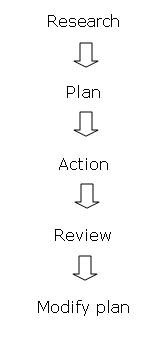3. Raising environmental awareness
It is important that pupils are encouraged to value their own culture and traditions. Scientists are discovering that indigenous knowledge carries important understanding, but there is a danger that this local knowledge will be lost.
Case Study 3 shows how a teacher uses local news to link local and global issues around pollution, threats to animal populations and increased employment and facilities.
In the Key Activity,you build on the earlier discussion and research and take action with your pupils to improve the local environment. In this type of work, you need to think carefully about how you divide up the work and ensure that everyone has a chance to participate. Encourage pupils to reflect on what they have contributed to the group (see Resource 6: Ideas pupils may have about working in a group).
Case Study 3: Using local news
There is a story in a local newspaper about how a large company plans to build a hotel near to the town on the beach, where many animals live and local people fish. Some local people are very upset about this and think it will bring pollution, and scare away animals and fish. Other local people are excited at the idea that there will be jobs in the hotel, and tourists to guide and buy local crafts. A local teacher, Mrs Ukpo, sees this as a good opportunity to link language and science.
She asks her pupils to find as many copies as possible of this edition of the newspaper. She then cuts out the article so that each group (eight pupils) has a copy of the article. In their groups, the pupils then read the article and analyse the article under these headings (which Mrs Ukpo has written on the board);

After half an hour, Mrs Ukpo stops their discussion and asks different groups to send a representative to help complete the table on the board.
She finishes the lesson by working with the pupils to write a summary of the story from the completed table.
Key Activity: Taking action
- Explain to your class that you want them to decide on a project where they take action to do something positive for the natural world.
- Brainstorm the aspects of local life that could be improved. Discuss and rank the ideas in order of importance.
- Next, divide your class into groups. Ask each group to draft a provisional action plan to present to the class. How will you decide which plan is sensible and realistic? Discuss this with the class and decide on 3-4 criteria for judging each plan.
- Ask the class to choose one plan and work out how you will measure how effective of the project.
- Finally, try to put your plan into action. Use an action research pattern of:

Resource 5: Thinking globally – acting locally gives more detailed advice on organising this activity.
2. Discussing environmental issues in groups



